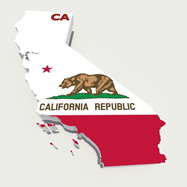Proposed changes to Proposition 13, California’s landmark property tax initiative, could generate as much as $9 billion a year for state and local governments. In addition to helping schools, public safety and infrastructure, the money would improve delivery of health care services, proponents say.
Opponents say tinkering with the landmark initiative passed in 1978 would harm the state, including the health care delivery system.
Two state senators last week introduced a proposal in the California Legislature to change the way California assesses tax on commercial property. Senate Constitutional Amendment 5 by state Sens. Loni Hancock (D-Berkeley) and Holly Mitchell (D-Los Angeles) calls for regular reassessments of offices, factories and other commercial property to ensure they are taxed at current market value. Under Prop. 13, they are reassessed only when property changes ownership.
The proposal, which does not affect residential property, would generate as much as $9 billion a year, proponents estimate.
The legislative push, which needs a two-thirds majority to win, is part of a statewide campaign spearheaded by unions. Whether approved by the Legislature or not, the Make It Fair campaign hopes to put the issue before voters with a statewide initiative on the 2016 ballot.
Proposal’s Effect on Health Care Disputed
Hancock said health care would benefit.
“My proposal will distribute the $9 billion raised from the corporations and industrial properties that are finally being forced to pay their fair share of property taxes to cities, counties, special districts and local schools,” Hancock said.
“The additional property tax revenues to counties will be completely discretionary and county boards of supervisors will be able to direct these additional funds toward any public purpose they deem a high priority — especially health care. Along with other local services, county health services will be able to benefit from this investment,” Hancock said.
Hancock said changes would especially improve local governments’ ability to deliver health care services.
“For cities, counties and special districts, the funding is distributed according to existing property tax allocation formulas, allowing local communities to re-invest in local services, including public safety, infrastructure, health care, mental health, parks, libraries and other community priorities,” Hancock said.
“I strongly believe that more revenue directed to counties resulting from passage of this constitutional amendment should and will result in better health care delivery in local areas,” Hancock said.
David Kline, vice president of the California Taxpayers Association, disagrees.
“A $9 billion-a-year increase on California property owners would have a devastating impact on California’s economy, and would increase consumer costs for just about everything, including health care,” Kline said.
“Reports on past split-roll proposals estimated that they would send hundreds of thousands of working Californians into the unemployment line, which would add stress to the state’s health programs for those in need,” Kline said.
Jon Coupal, president of the Howard Jarvis Taxpayers Association, said the changes would cause businesses to leave the state.
“I don’t see a big impact on health except that it will create a lot more public dollars. Of course, it will also hurt the economy and accelerate the exodus of California businesses,” Coupal said. The Howard Jarvis Taxpayers Association is named after the leader of the 1970s campaign that established restrictions on property tax assessment in California.
Uphill Battle in Sacramento; Voters Evenly Divided
Despite a solidly Democratic majority in the Legislature and among voters, overhaul proponents face a daunting task. The proposed constitutional amendment, which directs the Legislature to place an initiative on the 2016 statewide ballot, will require at least a few Republican votes to achieve a two-thirds majority.
Republican state Senate Leader Bob Huff (R-Glendora) assessed the likelihood that any GOP legislators would approve the idea as “very remote.”
A similar attempt to revamp Prop. 13 died last year in the Legislature. Assembly Democrats Tom Ammiano of San Francisco and Paul Bocanegra of Pacoima proposed tighter regulations for change of ownership of commercial properties.
A survey released last month by the Public Policy Institute of California showed voters evenly divided on the idea of assessing commercial property differently than residential property — known as “split roll” assessment. Among 1,706 likely voters polled last month, 50% liked the idea.
Battle Looms Over Ballot
One way or another, the issue will come before voters next year, proponents say.
“Constitutional amendments go to the voters for enactment whether the Legislature proposes them or the voters put them on the ballot,” Hancock said.
“A constitutional amendment if passed in both houses only becomes part of the constitution if the electorate approves it in a general election. However, if the Legislature fails to act in the coming months, I will support an immediate effort to gather the necessary signatures to put the proposal on the ballot as a voter-generated initiative. Either way, I expect this important tax reform proposal to be on the November 2016 ballot,” Hancock said.
Opponents will work to keep the issue off the ballot.
“This proposal would be bad for the state, and it does not have the public’s support, so there is no reason to put it on the ballot,” Kline said.
“The act of introducing this proposal already has sent a harmful signal to business that may have been considering creating jobs in California, and putting SCA 5 on the ballot would only amplify the problem. California already has the third-worst business tax climate in the nation, according to the Tax Foundation, and anti-business attacks like SCA 5 certainly do not help,” Kline said.
This article was originally published on CaliforniaHealthline.org and can be found HERE.



